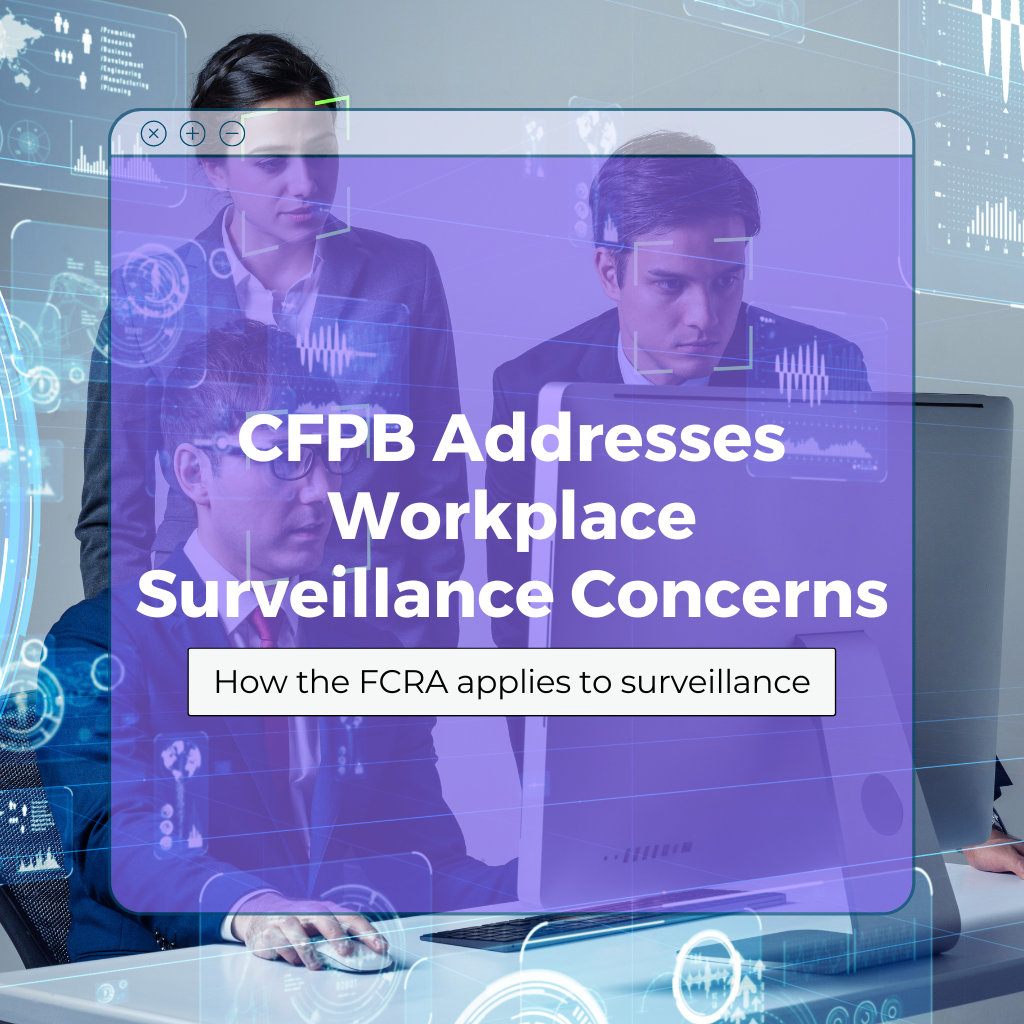August 10, 2023
The Consumer Financial Protection Bureau (CFPB) has recently faced a surge of complaints about automated workplace surveillance technology. In response to this pressing issue, the CFPB issued a formal statement outlining its intentions to apply the Fair Credit Reporting Act’s (FCRA) protections. The bureau hopes to ensure that the rights and privacy of employees remain safeguarded from advancing surveillance technologies in the workplace.
Surveillance in the Workplace
The CFPB explained that companies using workplace surveillance tools for hiring and firing decisions could violate the FCRA. This risk arises from the FCRA’s purview over information used in evaluating an individual for initial and ongoing employment. This Act safeguards the rights and privacy of individuals involved. As such, employers should comply with the FCRA when using surveillance data.
The information companies collect when using workplace surveillance tools can be shared with third parties, affecting decisions unrelated to employment. For example, the decisions could affect their ability to obtain a mortgage, car loans, and others. These consequences explain why the CFPB is considering the data broker industry and concerns about this new technology. The data broker industry includes companies gathering, aggregating, licensing, selling, sharing, or reselling personal information with other businesses or people.
This information could appear in consumer reports. A consumer report is “any written, oral, or other communication of any information by a consumer reporting agency bearing on a consumer’s credit worthiness, credit standing, credit capacity, character, general reputation, personal characteristics, or mode of living which is used or expected to be used or collected in whole or in part for the purpose of serving as a factor in establishing the consumer’s eligibility for employment purposes.” The FCRA defines employment purpose as a report used for evaluating a consumer for “employment, promotion, reassignment or retention as an employee.”
Protections for Employees
The FCRA provides crucial protections for employees. Workers have the right to know the contents of their consumer reports and to dispute the information if it is incomplete or inaccurate. In addition, consumer reporting agencies must correct or delete any incomplete, unverifiable, or erroneous information. For example, the FCRA prohibits these agencies from reporting outdated negative information. The Act also protects workers through specific requirements when using or furnishing consumer reports for employment purposes.
The CFPB intends to apply the protections in the FCRA to the use of employee surveillance data. As such, companies collecting and using this data should ensure they comply with the FCRA. The best way for employers to ensure compliance with the FCRA during the hiring process is to partner with an experienced background check company.
